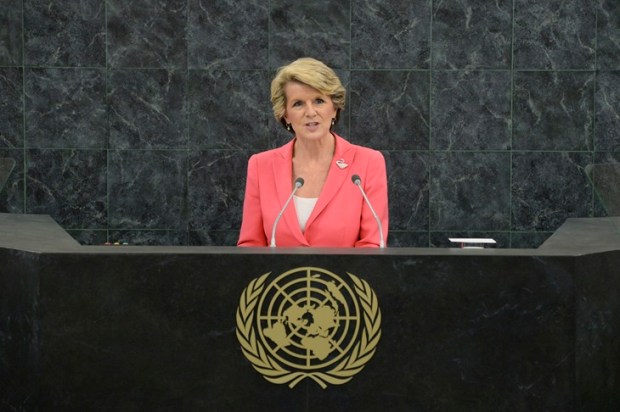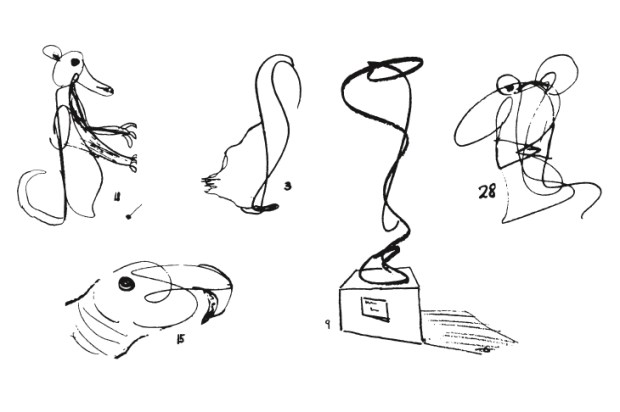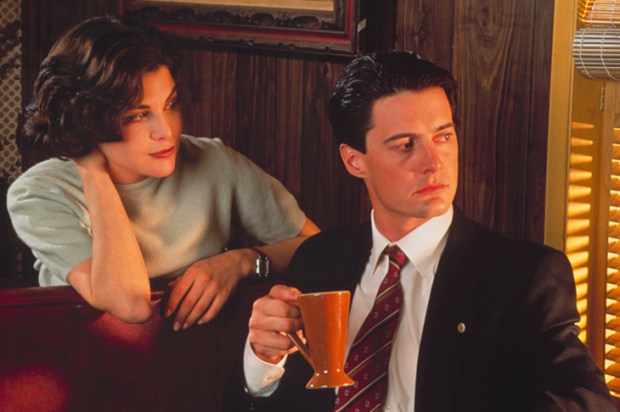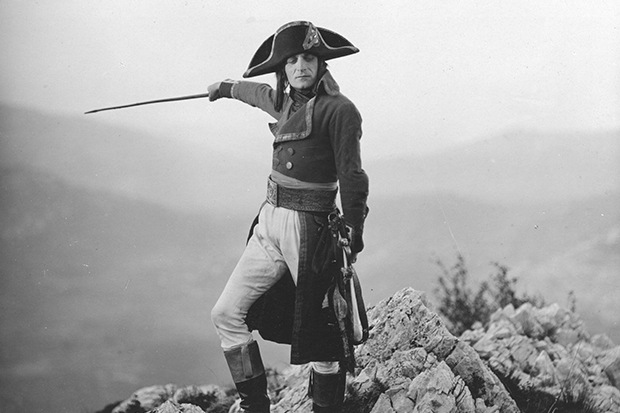Listen
http://traffic.libsyn.com/spectator/TheViewFrom22_10_July_2014_v4.mp3
Two glorious playhouses grace the south bank of the Thames. Shakespeare’s Globe and the National Theatre stage the finest shows available anywhere in the world. Both are kept in business by the play-going public who last year helped the Globe to turn over £21 million, with a surplus of £3.7 million. Audiences also flocked in record numbers to the NT and it notched up nearly 1.5 million paid attendances, with its three houses playing to over 90 per cent capacity. But there’s a massive difference between the two. The Globe is funded by customers who spend cash freely in an open market. The NT gets a bung of £17.6 million from the Arts Council, which is extracted from you and me, through the Inland Revenue, on pain of prosecution.
The latest spending round may have trimmed 3.6 per cent from the NT’s annual award but the pitch to its key supporters, the tax-paying public, remains the same. ‘Bail out the luvvies or we’ll put you behind bars.’ So we’re entitled to ask if there might be a simpler, friendlier way to keep the NT in business. Could it be encouraged to consider the merits of Globe-alisation? A glance through its funding model offers a few clues.
Leaving aside the £17 million tax heist (which forms 20 per cent of its income), the NT has an impressive catalogue of sponsors. Many are anonymous individuals. Travelex, a currency dealership, gives it £2.7 million a year in return for publicity. The NT also has a patron, Her Majesty, although there’s no hint of this connection on the NT website or on any of its branding. The Financial Statement, to be fair, comes clean about the embarrassment with the words ‘Royal National Theatre’ lodged at the base of the page.
This suggests an obvious way forward. Big up the Windsors a bit more and use them as bait to snare a richer sponsor than Travelex. The royals will want something in return, of course, and Prince Charles’s agricultural business might be named as the preferred supplier for all the NT’s catering needs. True, he won’t shift much organic shortbread in the foyer but there’s a restaurant upstairs, named Ovations, which would be an ideal showcase for foodstuffs grown on Duchy lands, according to Duchy precepts. Duchy beef, Duchy chips, Duchy cheese, Duchy crackers. And isn’t it time we had a top-quality Duchy champagne to rival the great marques of France? This could be the incentive that Charles needs to ‘take the Duchy to the next level’.
Replacing state aid with private investment will stir up a host of objections. What if the sponsor demands the right to rename one of the NT theatres? Well, that horse has already bolted. The Cottesloe is about to re-open as the Dorfman Theatre in honour of Travelex’s chief executive. What if the corporate backer tried to defile the South Bank with advertisements twinkling garishly over the dark and mysterious waters of the winding Thames? That’s happened too. The NT circumvents the ban on bankside adverts with a massive blinking noticeboard on its roof that flashes news of forthcoming attractions to drunken barge-pilots and vagrants dozing on Waterloo Bridge.
What if the corporation requires a slice of the profits? I’d suggest that an investor who stakes millions on an unpredictable venture deserves a return on their commitment. That’s how it works in the commercial sector. Forty per cent goes to the backer, once a show breaks even, and the lead producer takes the rest. Seems fair enough.
But would this innovation meet with the approval of the acting trade? Well, of course it wouldn’t. They’d reject it out of hand and with terrific fanfare. A Great Luvvie Backlash is inevitable when any public body is exposed to reform, be it a world-class teaching hospital or a rusting mobile library. But let’s ask ourselves why the thesps are so keen to man the barricades. Is it because principles are involved? Or because cameras are? In any case, it’s bewildering that anyone should trust what an actor has to say about a political issue. They’re ‘actors’, after all, which is a bit of a clue.
A trickier question concerns the NT’s fabled ability to innovate and experiment, to invest in oddball shows and to find hit productions in barren-seeming fields. The assumption here is that the NT is alone in its desire to stray off-piste and to seek treasure in uncharted terrain. In fact, every theatre producer who ever lived has felt an overpowering need to seek out dazzlingly original shows in the unlikeliest places. But only the NT has the freedom to do so, thanks to the sugar-daddy taxpayer who underwrites all its flops. And the NT’s status as a trustafarian with endless pots of cash is beginning to damage the West End. Secretly, and in hushed tones, theatre owners point out that the NT is able to mount 26 shows a year and to cherry-pick the best one or two and ‘take them into town’. Every private impresario keeps a slate of shows in development as well, but they don’t have the luxury of blowing half a million here or there on an experiment that may come falling back to earth with a sickening crunch of bruised egos and broken bank accounts.
At first sight, the National’s impact on the commercial sector seems pretty moderate. In 2013 it had three shows running in town, War Horse, One Man, Two Guvnors and Mark Haddon’s The Curious Incident of the Dog in the Night-Time. Add Matilda, from the tax-guzzling RSC, and you get a total of four subsidised shows in a sector with 50 theatres. That’s one twelfth of the whole. A large enough chunk to have a visible effect. The more the NT is able to experiment, the less the private investors are free to do so. The result is that independent impresarios, who risk losing their homes if they curate a string of failures, feel the need to hedge their bets by mounting fail-safe crowd-pleasers. And we know what that means. It means jukebox musicals. It means Noël Coward. It means yet another movie classic ‘reimagined for the stage’ with a script by the Father Ted guy and an all-star cast featuring a Downton rotter, a Hogwarts man-child, a Coronation Street escapee and Judi Dench. If we want less of that we need a fairer and freer market.
So, names and faces. What sponsor? Anyone, I would say. Let’s not be sniffy. A firm with deep pockets and a desire to form a long-term alliance with one of the world’s most prestigious cultural brands. The right candidate would have to complement and not directly compete with an existing sponsor like Travelex. An airline would pass the test. Or a large bank, or a pharma giant, or a well-established tech firm. Perhaps a major retailer, or a car manufacturer, or a multinational that makes running shoes. But here’s the oddity. The longer the list becomes the more the doubts start to creep in. Do we really want to give a toy firm or a fizzy-pop company equal billing with our theatrical history and our dramatic tradition? I’d feel a pang of shame buying a ticket for the ‘Intel Pentium National Theatre’ and taking a seat in the ‘Facebook Space’ or the ‘Lucozade Rooms’.
At this point, a new thought occurs. Perhaps we don’t need a sponsor at all. The Globe manages without any corporate backing. It makes do with a vague appeal to the public to be generous and stump up a bit of cash. By solidifying that invitation, and by giving it a formal structure, we could create a system of collective investment. This highly flexible and efficient model is gaining ground elsewhere. There are, for example, websites you’ve never heard of that can raise tens of thousands of pounds within a week or so to publish books whose authors are barely known within their own households. Small theatre companies are adopting the same method. And the NT has the supreme advantage of an international profile and a ready-made client list of art-lovers who’d be delighted to wager a few quid on a show that might, just might, run for ten years on either side of the Atlantic. The virtue of collective investment is that it creates an intimate, direct link between the punter and the product. With a body calling itself ‘the National Theatre’ that asset becomes priceless. The NT could begin to operate as a truly public organisation willing to share its treasures, artistic and financial, with the community it serves.
The alternative is to let the NT stay as it is, a gilded beggar, a tramp in a gorgeous suit of ruined silk, who obtains money with menaces from passers-by and then angrily denounces their meanness. The NT is the jewel in the crown of our artistic heritage. It doesn’t belong on Benefits Street.
Got something to add? Join the discussion and comment below.
Get 10 issues for just $10
Subscribe to The Spectator Australia today for the next 10 magazine issues, plus full online access, for just $10.














Comments
Don't miss out
Join the conversation with other Spectator Australia readers. Subscribe to leave a comment.
SUBSCRIBEAlready a subscriber? Log in